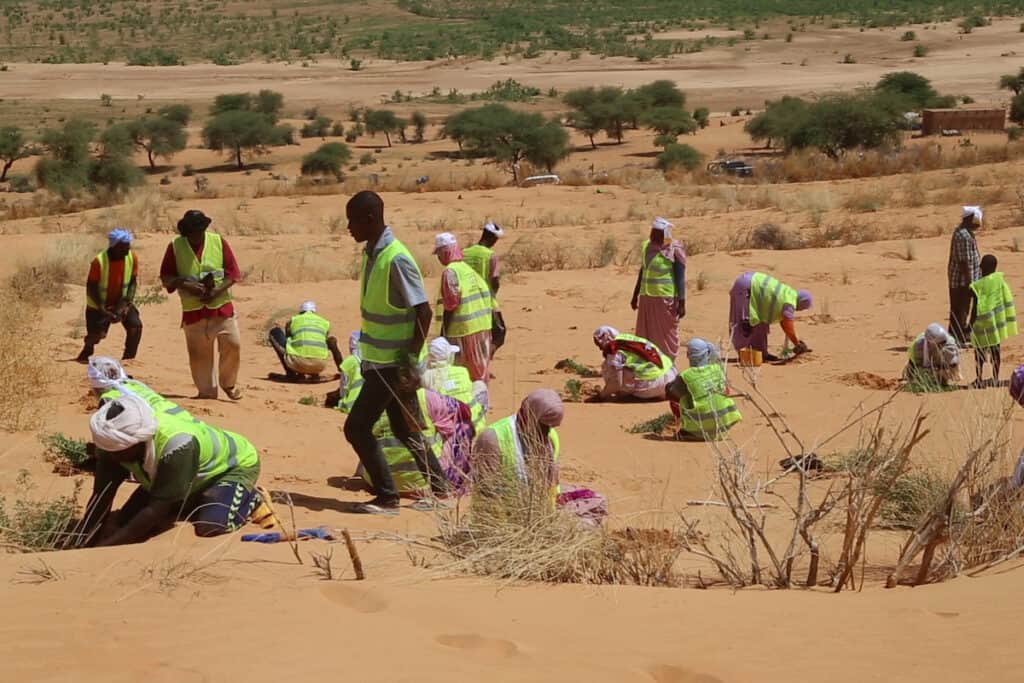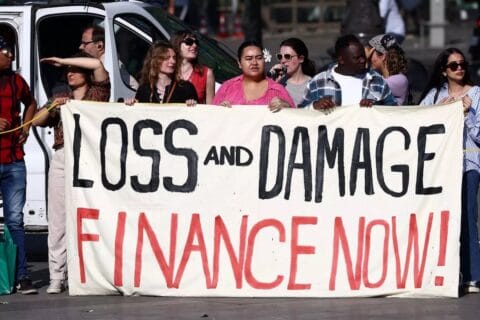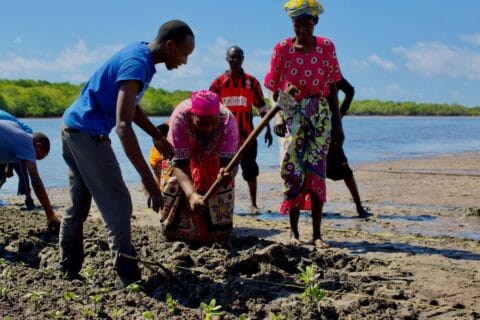
In this SustMeme Guest Post, Kelly Hunte, Project Administrator at the Caribbean Community Climate Change Centre (CCCCC), asks: Can the third-sector help developing countries win the race for climate finance?
KH: For years, non-governmental and civil-society organisations (NGOs and CSOs) have played a key role in the implementation of national development goals; and climate change is no exception to the rule.
As grassroots organisations, NGOs and CSOs are naturally well-placed to provide a clearer picture of the needs of vulnerable communities within developing countries. These communities are often the ones more at risk from the impacts of climate change — which is why effective engagement with the third sector is so valuable.
In fact, donor agencies have specifically written into their strategic approaches the requirement for governments across developing countries to undertake multi-stakeholder engagement processes, involving key NGOs and CSOs.
This prompt is intended to ensure the needs of those countries are captured in full, such that adequate finance programmes can be provided to assist them in achieving their national development goals.
Unfortunately, however, the type of third-sector engagement commonly undertaken by governments across developing countries tends to be superficial, rather than fully strategic.
Finance is failing the people and the places in need
This lack of engagement means the money is failing to reach the people and the places in need.
A study by the International Institute for Environment and Development (IIED) found that less than 10% of funds committed under different global climate financing windows actually ended up being spent helping marginalised communities adapt to climate change impacts and adopt clean energy.
This is simply not good enough!
Part of the problem is that the third sector might only get brought in when it comes to low-level discussions around local and operational matters, such as project evaluation and monitoring.
It is not typically involved in the high-level, strategic policy debate and the effective development of country programmes, or financial needs assessments, which inform the allocation of funds at the international level.
As a result, Green Climate Fund (GCF) country programmes and briefs usually have a large number of public-sector projects, plus some private-sector, but relatively few third-sector lead initiatives.
So, what can be done to change the game on climate finance?
Next steps towards better results
The revised GCF Readiness Programme strategy calls for countries to produce national visions to 2050 and beyond, with an explicit recommendation that the funding process begin with extensive stakeholder engagement.
So, key next steps towards better engagement might include the following moves and measures:
- Developing counties should use the readiness assessment as an opportunity to ensure that members of the third sector have input into this process, so that funds can meet the needs of the most vulnerable communities;
- There should be a push to have country briefs and programmes that not only reflect public- or private-led projects, but also include a number of projects developed by the third sector;
- The office of the National Designated Authority (NDA) should ensure that NGOs and CSOs receive assistance through readiness to strength their capacity and ability to engage with the GCF — not just as executing entities, but also by having them accredited to the fund; plus
- Countries should also document and promote the successes of readiness programmes that seek to strengthen engagement of the third sector — for instance, by adding an NGO or a CSO category onto the tab menu that is used to filter by type the online portfolio of GCF approved projects.
Ultimately, things must change within the realm of climate finance, to ensure vulnerable communities do not get left behind in the race to resilience. The only way to make this happen is via better third-sector engagement.

Kelly Hunte is an economist, based in Barbados, who is passionate about climate finance and other economic development issues. She is currently attached to the Caribbean Community Climate Change Centre (CCCCC), in the capacity of Project Administrator. From its HQ in Belize, the CCCCC works to coordinate the region’s response to climate change, exploring and implementing effective solutions and projects to combat the impacts of global warming.
Further Reading:
- More on the Green Climate Fund (GCF);
- View full portfolio of over 200 GCF-approved projects;
- More about National Designated Authorities (NDAs);
- Details of the official UN List of the 46 Least Developed Countries (LDCs);
- More about the 58 Small Island Developing States (SIDS);
- More about the United Nations Convention to Combat Desertification (UNCCD);
- More on IEED research that revealed climate finance has not been reaching the local level;
- Also on SustMeme, Half of humanity affected by land degradation;
- Also on SustMeme, Reforestation grows towards goal of 100M trees;
- Also by Kelly Hunte on SustMeme, Guest Blog: Can private money save the Green Climate Fund?
- Also by Kelly Hunte on SustMeme, Guest Blog: Is the new Climate Goal just smoke and mirrors?
You can check out the full archive of past Guest Blog posts here.
Would you like to Guest Blog for SustMeme? For more info, click here.
SUSTMEME: Get the Susty Story Straight!






